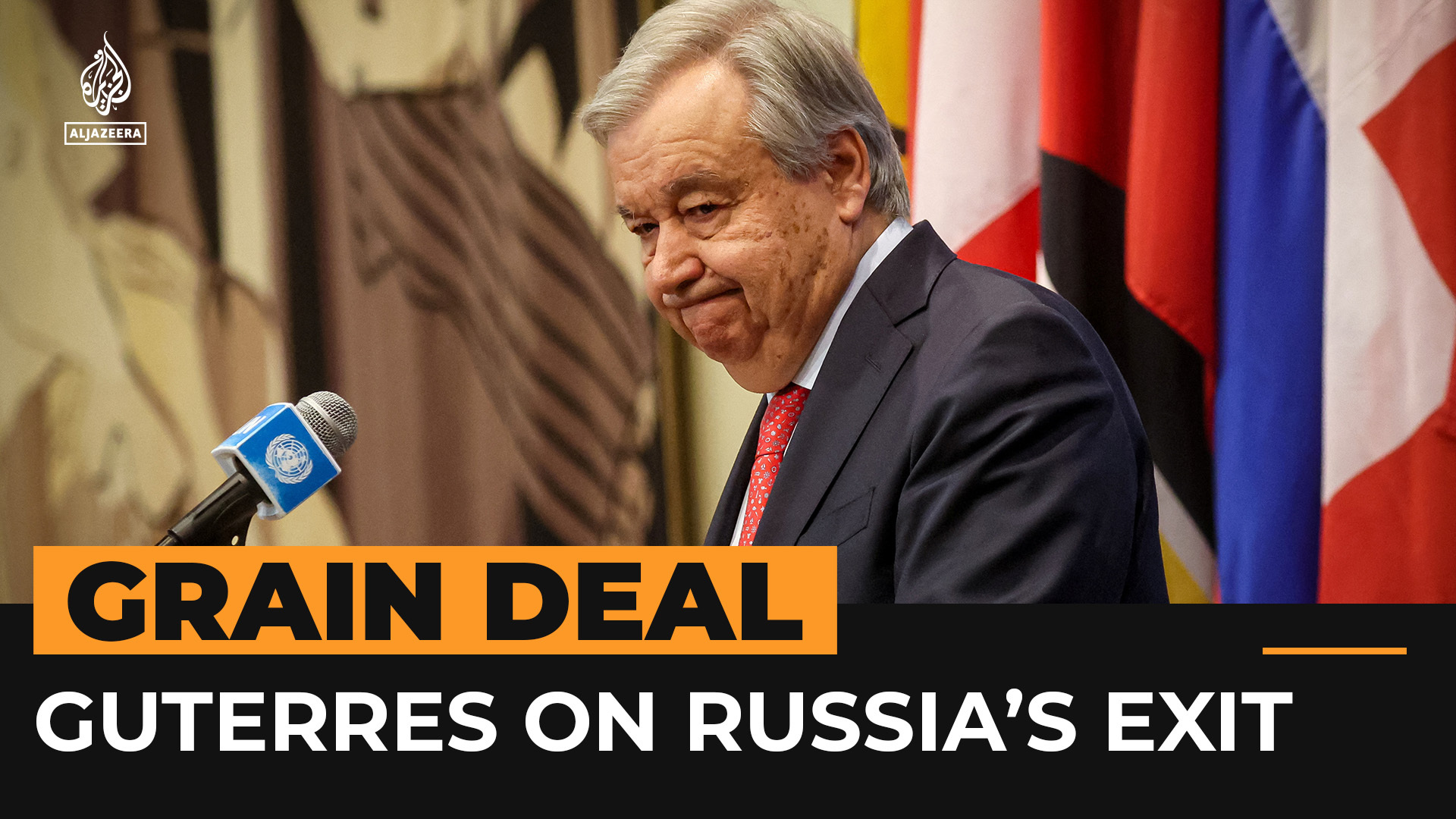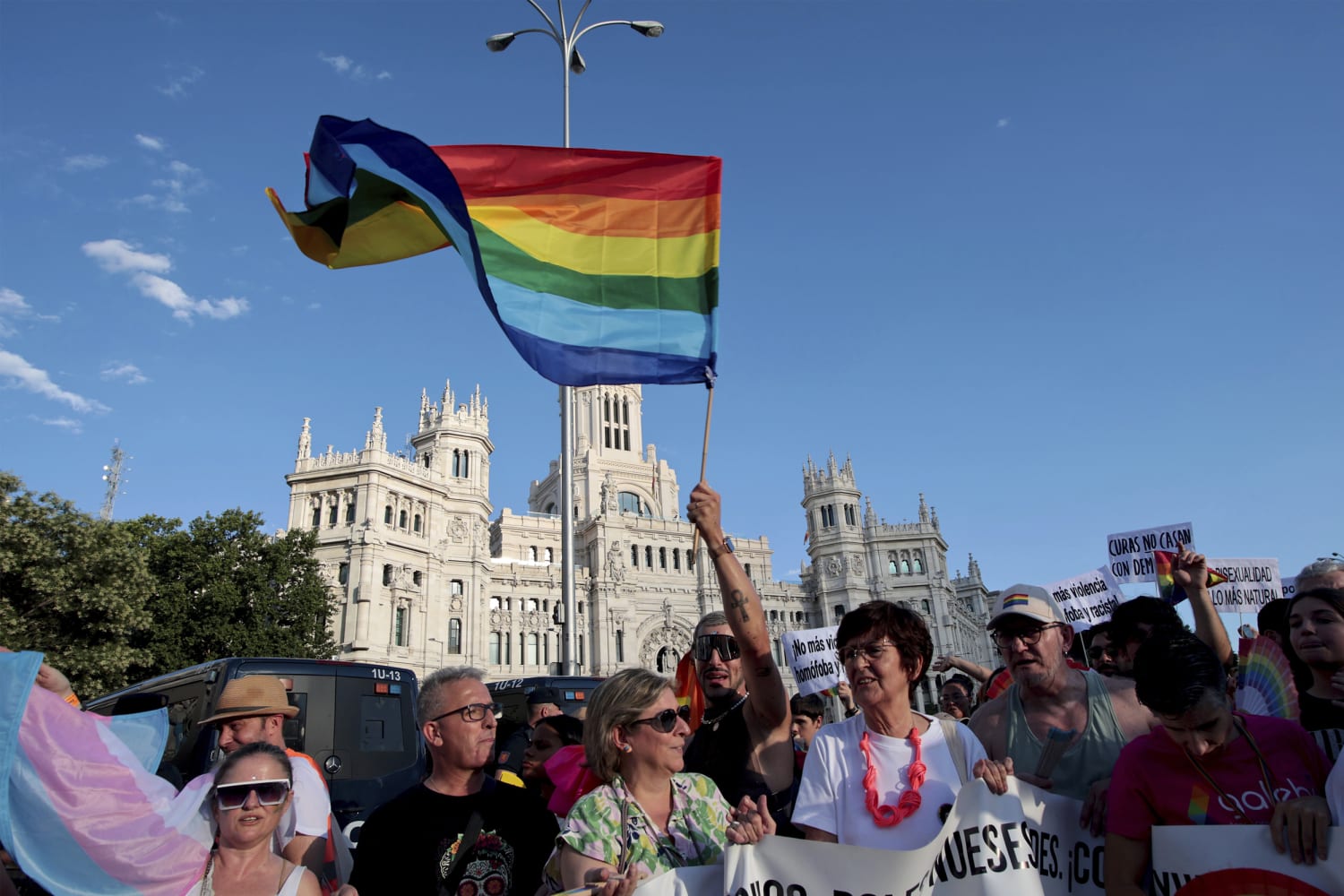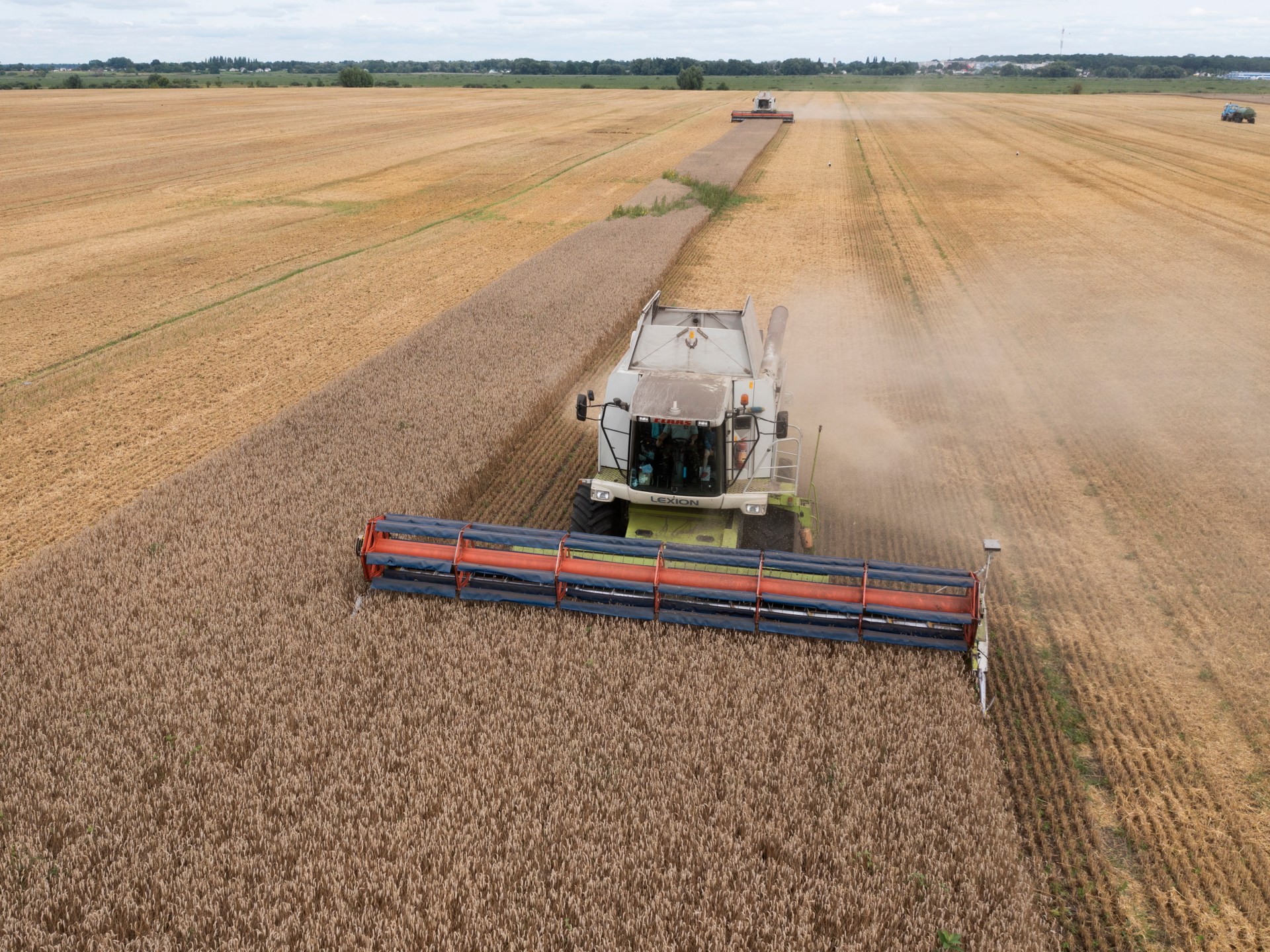On Dubai’s new playground, Israelis find Jewish parties and rituals

Dubai, United Arab Emirates (AP) – It was just a sight a few months ago that would have been unimaginable. While the Emiratis in white robes and flowing headscarves gazed, the Israeli bride and groom were raised on the shoulders of hooded groom companions and headed towards the dance floor, as the dozen joined the crowd as they swayed and sang in Hebrew.
Noemi Azrad and Simon David Benhamo were not content with throwing a fairly normal wedding ceremony amid a pandemic that has shut down their country and devastates the world. They were having fun in Dubai in the United Arab Emirates, which – like most of the Arab world – has been off-limits to Israeli passport holders for decades.
The two were among tens of thousands of Israelis who flocked to the UAE in December after the two countries normalized relations in a deal brokered by the United States.
Israel’s recent lockdown caused by the virus, which began earlier this week, has temporarily eased the travel fever. But Israelis with intermittent vacation plans, now stuck at home, hope the vaccination campaigns will help contain the outbreak and make Dubai trips possible again soon.
The allure of Dubai, the UAE’s skyscraper commercial hub with its sandy beaches and marble shopping malls, has already proven its strength. Dozens of Israeli tourists seek to celebrate and ease months-long restrictions on the virus that were not deterred by their government’s warnings about possible Iranian attacks. In the area, they celebrate weddings, bar mitzvah parties and the eight-day Hanukkah Jewish Festival while banning large gatherings back home.
“I expected to feel really uncomfortable here,” said 25-year-old Israeli bride Azrad, from the hotel’s ballroom, as she bathed in the glow of the sparkling Dubai skyline. But all of her favorite wedding destinations have announced strict restrictions on gatherings to check the spread of the virus. Dubai concerts 200 hats.
Not wanting to delay the wedding, the choice was clear.
“I feel like it’s Tel Aviv,” Azar said of Dubai. “I hear Hebrew everywhere.”
Her French father, Igal Azrad, said he always hides his hood in his pocket for fear of being attacked on the streets of Paris. But he said that the kebbe scene in Dubai prompts “Emiratis to go up and tell me” Shalom. “
The astonishing pace of normalization has stunned even skeptics. Despite the long-running secret relations between the two countries, the United Arab Emirates considered Israel a political pariah because of the decades-old Israeli-Palestinian conflict. The modest immigrant Jewish community in the Federation of Seven Sheikhs was out of sight and prayed in an unmarked villa.
But the arrival of 70,000 Israeli tourists, according to travel agent estimates, on 15 non-stop daily trips in December changed everything. Hanukkah candlesticks 12 feet (3.5 meters) tall beneath the Burj Khalifa, the tallest tower in the world, gathered Jews to light candles and take selfies as ceremonial Hebrew songs blasted through the huge fountain in the city center.
Friday night’s hidden meal for the Jewish community turned into celebrations in two large ballrooms with extended seats for Israeli visitors. “Made in Israel” signs have appeared in Dubai’s grocery and alcohol supermarket chain, which now sells wine from the Golan Heights that Israel annexed. A Dubai-based commodities company said wine, honey and tahini from Israeli settlements in the occupied West Bank will be on the shelves in the coming weeks and will be classified as Israeli products.
On social media, a trip to the United Arab Emirates has become a status symbol for Israelis posting pictures of themselves in Dubai. Dozens of hotels across the city say they have booked thousands of Israeli travelers and hosted an array of Israeli business conferences, holiday parties and day-long weddings. The Israeli singers have planned to hold concerts in the spring. Kosher catering companies from the UK and elsewhere have set up shop in the UAE. Plans are underway to start building the first Jewish cemetery and ritual bath known as the Mikva, according to Rabbi Mendel Duchman, who helps run the country’s Jewish community center.
“It was an unbelievable thing, it was a tsunami,” said Mark Feldman, president of the Jerusalem-based Zionists, referring to the contradiction to the “cold peace” between Israel, Egypt and Jordan. “Dubai has become an oasis for Israelis amid the epidemic.”
For weeks in December, the only other countries in which the Israelis could land without a 14-day home quarantine upon return were Rwanda and Seychelles. Dubai has remained open to business and tourism, with few restrictions beyond social distancing at home and masks abroad. Masks are not often used by guests at weddings and other gatherings.
Even as Israelis rush around the warm embrace of their hosts, very little has been heard of the UAE’s turning 180 degrees from its one million citizens, who are afforded free housing, education, and healthcare and tend to isolate themselves from the vast expatriates in their own country. Hereditary sheikhdoms suppress dissent. Even dramatic political decisions are met with acquiescence.
Ahmed Al-Mansoori, director of an Emirati museum who welcomed dozens of Israeli visitors to his collection of ancient maps and manuscripts, including Torah manuscripts from the fourth century, acknowledged “some cultural misunderstanding among residents who had never interacted with each other before.”
“Every Emirati has his own mentality about this,” he said when asked about the reflection of a policy that the Palestinians consider a betrayal of their quest to establish a state on the lands occupied by Israel.
But he pointed out that Dubai, a city that employs millions of workers from Africa, Asia and the Middle East, easily absorbs waves of expatriates, including from countries locked in bitter conflicts with one another.
Despite initial concerns about Iranian threats and the diplomatic fallout from tourists ’misbehavior, travel agents say there were only minor hiccups. Few Israeli tourists got stuck in the dunes while racing on quad bikes, prompting a government helicopter to take on an elaborate rescue mission, said Yaniv Steinberg, owner of Privilege Tourism. He added that some of them were arrested because of taking pictures in a mosque. Others have been reprimanded for kissing in public, an offense punishable by imprisonment in the UAE’s Islamic legal system.
But with the escalation of the virus in Israel and the spread of images of loud, unmasked parties in Dubai via social media, it was reported that the Ministry of Health and Foreign Affairs in Israel are arguing over whether the UAE will be classified as a highly contagious region, which requires quarantine upon arrival at Israel and may distort the engagement of the new countries.
Within days, the point was moot. Israel entered a third lockdown on Sunday. By that time, the newlyweds, Azrad and Bahmou, had returned home.
“The Coronavirus has really hindered us,” said Eliaf Benjamin, an official at the Israeli Ministry of Foreign Affairs, referring to recent Israeli normalization agreements with Bahrain, Sudan and Morocco. “It is unfortunate for all the new friends in the region that we want to meet.” “Vaccines, however, will be a game-changer.”

«Гордый фанат пива. Безумно скромный фанатик еды. Обычный интернет-энтузиаст».

/cloudfront-us-east-2.images.arcpublishing.com/reuters/BFUJHNDGARNZLGDKR3RFZZNFAM.jpg)
/cloudfront-us-east-2.images.arcpublishing.com/reuters/FUHZQ5X5ENOGVJJEAAJDURV4XE.jpg)
/cloudfront-us-east-2.images.arcpublishing.com/reuters/JI7V2J527NKZ5CIZUMFYGLFIBA.jpg)






